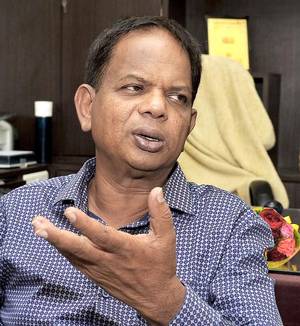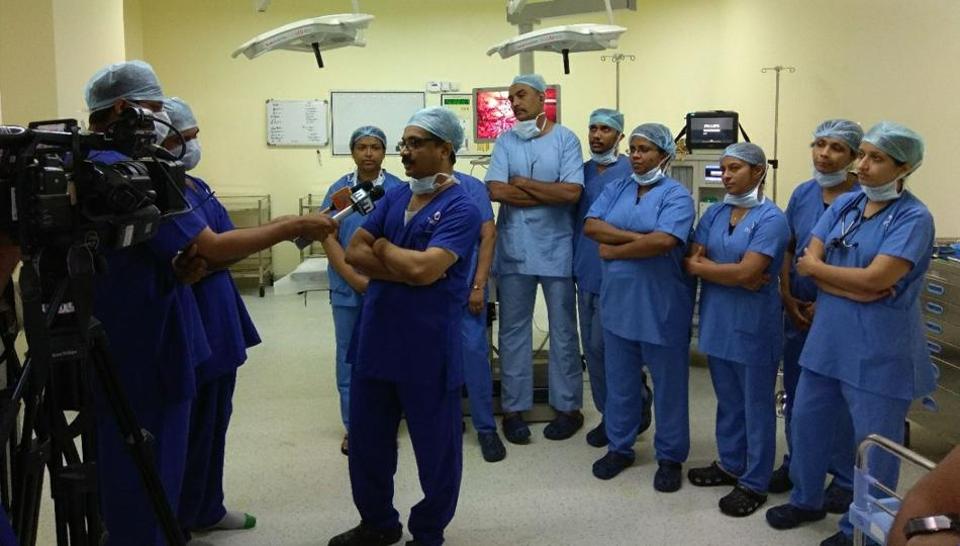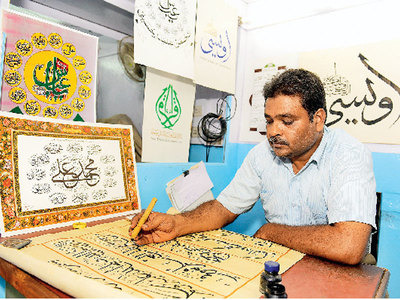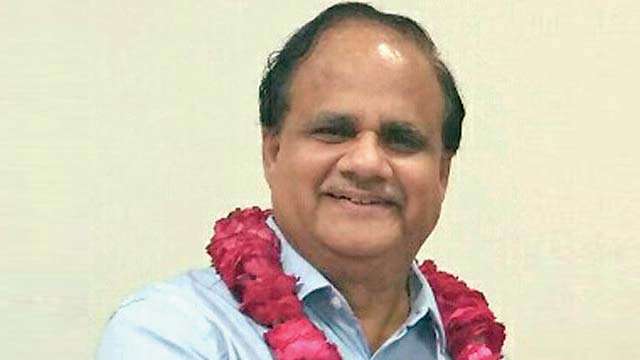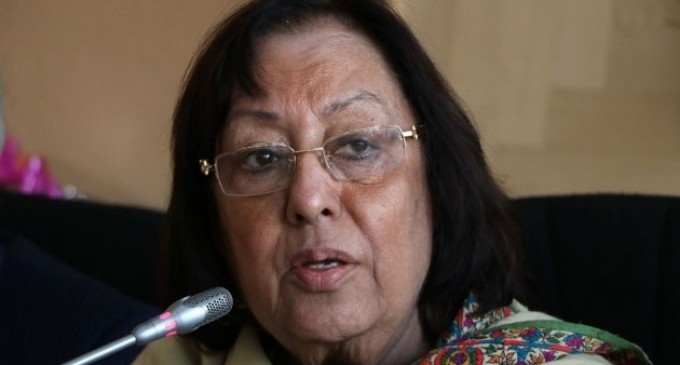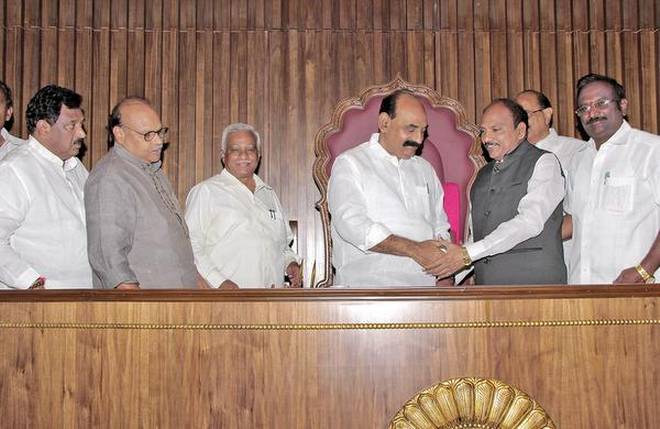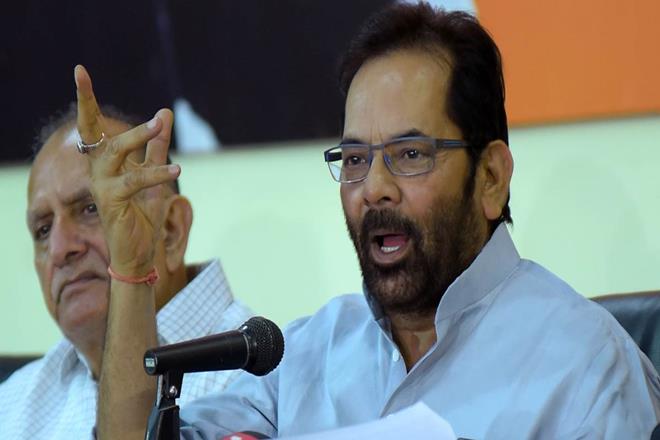NET EXCLUSIVE :
A myriad of firsts and distinctions in a journey that has spanned four decades, Dr Najma Heptullah, Governor of Manipur, breaks the traditional sit-in role of the Governor with her penchant for engaging with the common people.
Grand niece of Freedom Fighter Maulana Abul Kalam Azad, the techno-savvy septuagenarian is a paragon of age being just a number as she greets and meets people from all walks of life in the state in between a hectic schedule of official engagements.
The youngest Deputy Chairperson of the Rajya Sabha at the age of 45, the first woman President in 115 years of the Inter Parliamentary Union at Geneve, and the first woman Governor of Manipur, Dr Najma Heptullah opens up on a one-to-one with NET –with characteristic humor, wit and anecdotes.
NET: How is Manipur so far? A lot of people are saying that you are the first Governor in recent times to be actually involved real time with the public? What do you have to say about it?
DR NAJMA HEPTULLAH: When i came to Manipur in August 2016, there were lot of problems in Manipur. There were bandhs, blockades, nothing was available in the market. Essential commodities, food items, medicine, petrol, diesel, cooking gas -everything was so expensive. And there was insurgency everywhere. Nobody was coming out of the house after sunset, even in the Imphal city.
The state was in a bad shape. So I tried to work hard, I tried to understand the problem afflicting the state. I had many, many seminars at the Raj Bhavan, I interacted with the people, talked to them and communicated to them.
And in the process, I realized the basic problem was lack of development – lack of opportunites for jobs, for entrepreneurship, etc, though Manipur had tremendous possibilities. There was so much talent in the Manipuris, the students are very smart. They are very nice people, basically very nice people.They are peace-loving people. But lack of development made them take a different attitude.
And I am so happy that I made appeals to the people and teh people responded to those appeals. For example, there were 9 dead bodies in Churachandpur that were not cremated for more than a year.I spoke to them and told them that at least bury the dead, they were victims of violence. Bury them, at least they would get mukti, I said to them. They listened to me.
Then I called the people who were holding a blockade on the highway. I said why you were holding a blockade for the livelihood of the people. They too responded.
Then at the elections, I made an appeal to the people, ‘Let’s have a peaceful election.’ There, at the election, the Manipur which everybody thought was full of unrest, violence, bandhs and blockades, recorded a turnout of 87%, the highest in the country.
The new government at the Centre realized the problem was of a lack of development. So it too decided to focus on development, on job creation.
I suggested a plan for the state. I suggested focus on skills training, since I had experience in skills training for job creation during my tenure as Minority Affairs Minister.
My suggestion has been approved by the Centre. And today itself is a very happy day for me, because, when I met the PM and DoNer Minster Shree Jitendra after my swearing-in here, I said to him that in the Hills area, the basic problem is lack of access to health facilities. So I suggested the Flying Doctor, which I had seen in Australia. It helped that Shree Jitendra was himself a doctor, and someone who came from Kashmir, so he understood the problems lying at the hills.
Today, this very day, there is news that they are going to have the Flying Dispensary.
I am really happy. I have thanked the PM for having accepted my proposal -my first proposal actually.
My second proposal was skill development -the livelihood programme, which has also been accepted.
I thank the Centre for having accepted my proposals. I have been to places around the world, and I would like the best of everywhere to be followed in Manipur.
NET : How would you describe your political journey so far
DR NAJMA HEPTULLAH: Ohh, my political journey is a long journey. I am grandniece of Maulana Abul Kalam Azad. I have seen the freedom struggle and how my family suffered with that -when he used to be jailed, and how they left Calcutta and came and settled in Bhopal. I was born in Bhopal.
You know, I was remembering one thing the other day. Whenever the National Anthem was being played at official functions, I remembered that the first time I learnt the National Anthem was –you won’t believe- at the age of 8! It was the first anniversary of the Independence Day. Me and my cousin who was 9 years old then. You can imagine, it was the first anniversary of Independence Day in front of a large audience in Bhopal.
NET: Off the record, actor Amir Khan is also related to you, right?
DR NAJMA HEPTULLAH: Why should it be off the record? It should be on the record(laughs). Yes he is my nephew, my cousin’s son. My cousin, his father and his uncle Nasir Huissain, we grew up in the same house. It was a large joint family. We were all very close. We are like brothers and sisters, not cousins, very close.
His mother and sisters came here, In Manipur, in April this year. They were my guests.
NET: In your career, what has been the most challenging part so far?
DR NAJMA HEPTULLAH: Hmm (sighs) You know, at different levels you have challenges. In our childhood it was education, it was education. But fortunately, I had no problem in education. My family was very much for the education of women. My aunt brought me up. Whatever I am today, I owe it to her, because of her rigorous training.
I finished my PhD at the age of 22, Masters at 20. I topped the University in Masters. Topping the University (in light vein) was not a challenge really, because I knew I was going to top it! Pandit Jawahar Lal had come to the university the city the previous year, and I had told him that he should come the next year because I was going to top it! (laughs). Yes, I remember the letter that I wrote to him after I topped the University.
Then, another challenge is, when I became the Rajya Sabha Deputy Chairman at the age of 45, the youngest to be so -when Rajiv Gandhi came to power.
You know, to be presiding over a House where so many senior members like Bhupesh Gupta, Pilloo Mody, Pranab Mukherjee, Atal Behari Vajpayee, LK Advani -you know, to be presiding where there were so many senior veterans, it was a challenge really.
Rajiv Gandhi asked how I was going to preside over the House. I said. ‘’Sir, my education is going to give me the confidence.
But, if nothing works, my sense of humour will take me through!’’
And it is actually true that it was the sense of humour part that actually came to my help in running the House.
I am the first woman in 115 years in the world who got elected as the President of the Inter-Parliamentary Union, that is a Union of the parliaments of 175 countries.
And also I am the first woman Governor of Manipur! (laughs)
NET: You have also been the Union Minority Affairs Minister in the past. Can you cite us a few accomplishments which the department achieved under your tenure?
DR NAJMA HEPTULLAH: As MAMs, my focus was on skill-development. For example, I started a programme called USTAD. Ustad we call a person who is an expert, a teacher. And the acronym USTAD means, Upgradationof Skills and Training of Arts and Crafts for Development. That was the programme. Lots of the minority people are engaged in traditional arts and cratfts. Muslims are engaged in weaving, in Punjab, those that are engaged in the special kind of Phulkaris, are Sardars, similary there are many minorities who are involved in handicrafts. The best carpenters are there in Muradabad.
They are doing excellent work and they are all minorities. I had them orgainized under this programme USTAD to upgrade their skills. Over 1 lakh 50 thousand have benefitted from this programme.
Then I started the MANAS programme, Maulana Azad National Academy for Skills. Then there was the Nayi Manzeel for school drop-out children. Likewise, many such schemes and programmes which have benefitted thousands of lives today.
NET:There is a misconception of the people from the rest of the country about the Northeast, especially Manipur. How do you think these misconceptions be corrected and rectified?
DR NAJMA HEPTULLAH: That is the reason, the PM realized it, and he said, ‘’Look East, and Work East.’’
Distance is the problem. That is why I had suggested to the Aviation Minister, to have direct but less costly flights, because if the mode of travelling for the people is flight, but flights are expensive, then people will have problem coming here. If flights stop at Guwahati for 3 times a week, instead of directly coming to Imphal, then there is the travel gap. So people don’t come or go.
But Aviation Ministry is considering it, the issue.
Second, people have the misinformation that Manipur is plagued by insurgency. That is also the reason. But, now you see, things are improving. Can you imagine, 6 months ago, people did not come out in the Imphal streets after sunset, but now thousands of people are coming out to enjoy a certain thing called ‘Imphal Evening’?
This is the confidence-building among the people. I go and mix up with the people, in spite of my security’s warnings . Sometimes I must be giving my security the fright! But I go and mix with the people, because I know Manipuris are peace-loving, nice people.
NET:Have you travelled to any other North-eastern state?
DR. NAJMA HEPTULLA: Up to Shillong. Unfortunately, might schedules make me ineligible to travel much these days. My routines saunter between Imphal and Delhi.
NET:Who have been the most influential person in your life
DR NAJMA HEPTULLAH: There can never be one person, there have to be many. We all take ideas and influences from many walks of life.
But the one person who has influenced me most is my grand uncle Maulana Abul Kalam Azad. He was one Indian Muslim who gave the correct picture of a true Muslim. Today, the image of a Muslim is somewhat distorted.
NET:If you have not entered politics, how would have the world known you then?
DR NAJMA HEPTULLAH: Actually I did not want to join politics. Politics was fate. I wanted to be a scientist. I wanted to do research.
We were the people of that generation where young boys and girls dreamt of being Nobel Prize winners, things like that.
I was offered a Rutherford scholarship, and also a job at NASA because I worked at high-flying birds, how the high birds functioned in the high altitude, which was interesting to the NASA people.
My idea is, those were the things those days. Science was my passion.
NET: Any special message that you would like to give to our readers.
DR NAJMA HEPTULLAH: I always have one message for everybody. Education.
Give education to the people, it opens the mind. The first message of the Quran to Prophet Muhammad was ‘’Iqra’’, which means ‘’Read.’’ Every religion talks about knowledge, education, to know your Creator.
So, educate your boys and girls. And I am very happy that here in Manipur, women are very empowered in the sense that women’s education is pursued fully here.
source: http://www.northeasttoday.in / Northeast Today / Home> Manipur / by Northeast Today / November 17th, 2017
